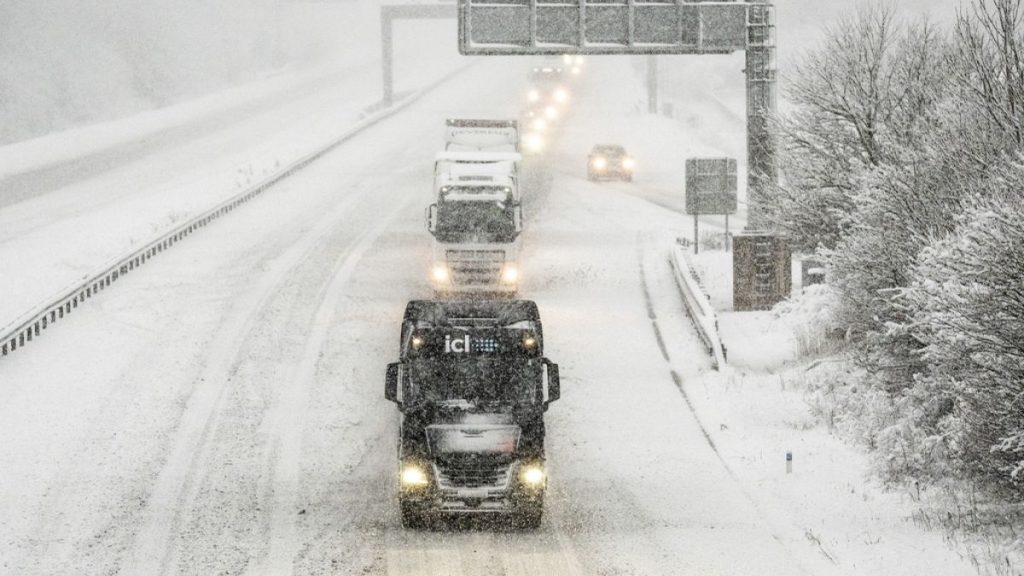The onslaught of heavy snow and freezing rain across Europe, particularly in Germany, unleashed a cascade of travel disruptions on Sunday, December 11, 2022. Frankfurt Airport, a major European hub, bore the brunt of the storm, forced to cancel 120 out of its scheduled 1,090 takeoffs and landings. The cancellations stemmed from a combination of factors: the necessity of clearing snow accumulation from runways and severely reduced visibility, both of which significantly hampered the airport’s operational capacity. Munich Airport, another key German airport, also experienced limitations, operating with only one runway while snow removal operations were underway on the other. Preemptively, 35 flights had been cancelled on Saturday in anticipation of the deteriorating weather, with an additional estimated 750 flights postponed to Sunday. The wintry conditions extended their icy grip to Stuttgart Airport, where de-icing procedures for aircraft were prolonged due to the severity of the weather.
The heavy snowfall, reaching up to 10 centimeters in Cologne overnight and into the early morning, transformed into treacherous icy conditions as temperatures fluctuated, contributing to a surge in traffic accidents across affected regions of Germany. A significant proportion of these accidents were attributed to drivers ill-equipped for the wintery roads, persisting with summer tires on snow-covered surfaces. Recognizing the heightened risk, German authorities issued widespread black ice warnings for both motorists and pedestrians, strongly advising against unnecessary travel and encouraging people to remain indoors whenever possible. The heavy snow and resulting icy patches created hazardous driving conditions, increasing the risk of accidents significantly, particularly for those unprepared for winter driving.
Beyond Germany, the extreme winter weather extended its disruptive reach to the United Kingdom, rendering many key roads in the northern parts of England and Wales impassable. The heavy snow and ice made driving conditions treacherous, leading to numerous accidents and widespread travel disruptions. Major airports across the UK suspended flights as a result of the adverse weather conditions, further compounding the travel chaos. Sporting events scheduled for Sunday were also postponed, highlighting the pervasive impact of the extreme weather on various aspects of daily life. The UK’s Met Office issued eight weather warnings across the country, reflecting the seriousness of the situation.
The neighboring island of Ireland also faced the wrath of the storm, with significant snowfall prompting authorities to issue two weather alerts for affected areas. The heavy snow and strong winds combined to create blizzard-like conditions in some areas, leading to power outages and transportation disruptions. As a result of the adverse weather, an estimated 300,000 homes and businesses across Ireland experienced power outages, leaving many without electricity amidst the freezing temperatures. The widespread power outages added another layer of difficulty for residents already grappling with the challenges posed by the extreme weather.
The widespread disruption caused by the heavy snow and freezing rain underscored the vulnerability of transportation networks and infrastructure to extreme weather events. The cancellations and delays at major airports, coupled with the hazardous road conditions and power outages, highlighted the need for robust preparedness and response mechanisms to mitigate the impact of such events. The economic and social consequences of these disruptions were significant, affecting businesses, travelers, and communities across Europe.
The extreme winter weather served as a stark reminder of the importance of heeding weather warnings and taking appropriate precautions. Drivers were urged to equip their vehicles for winter conditions, including using winter tires and carrying emergency supplies. Pedestrians were advised to exercise caution on icy sidewalks and roads, and everyone was encouraged to stay informed about weather updates and travel advisories. The widespread disruptions and hazardous conditions emphasized the importance of individual preparedness and community resilience in the face of extreme weather events.

